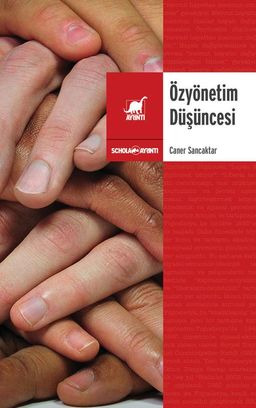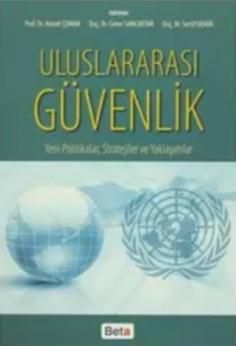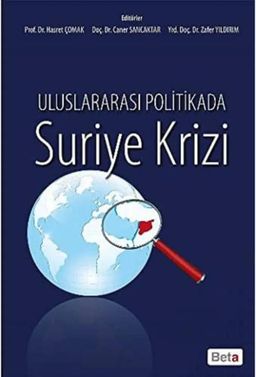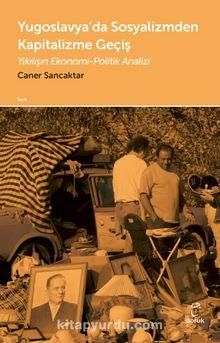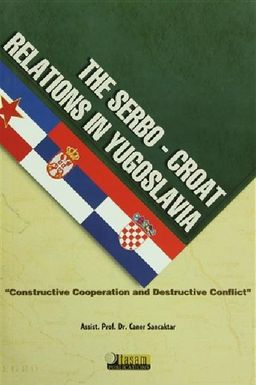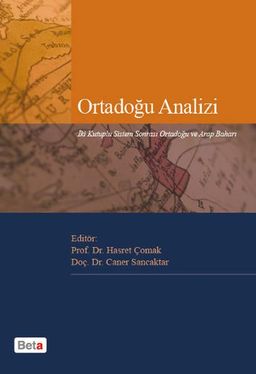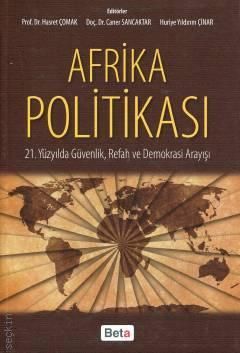Hakkında
1978 yılında İstanbul’da doğan Caner Sancaktar, ilk, orta ve lise eğitimini sırasıyla Şehit Kâmil Balkan İlkokulu (1984-1989), Oğuzhan Ortaokulu (1989-1992) ve Sağmalcılar Lisesi’nde (1992-1995) tamamladı. 2000’de İstanbul Üniversitesi İktisat Fakültesi Uluslararası İlişkiler Bölümü’nden mezun oldu. 2004’te Boğaziçi Üniversitesi’nde Siyaset Bilimi ve Uluslararası İlişkiler alanında Yüksek Lisans ve 2009’da İstanbul Üniversitesi’nde Uluslararası İlişkiler Anabilim Dalı’nda Doktor derecelerini aldı. 2005-2009 yıllarında Türk Asya Stratejik Araştırmalar Merkezi’nde (TASAM) çalıştı. 2010’da Kocaeli Üniversitesi İ.İ.B.F. Uluslararası İlişkiler Bölümü’nde Yardımcı Doçent olarak göreve başladı. 2014’te Uluslararası İlişkiler bilim dalında Doçent unvanını kazanan Caner Sancaktar, halen Kocaeli Üniversitesi Uluslararası İlişkiler Bölümü’nde öğretim üyesi olarak görev yapmaktadır. Yazarın, The Serbo-Croat Relations in Yugoslavia: Constructive Cooperation and Destructive Conflict adlı bir kitabı ve çok sayıda yayımlanmış makalesi mevcuttur.
Unvan:
Yazar
Doğum:
İstanbul, 1978
Okurlar
1 okur beğendi.
8 okur okudu.
1 okur okuyor.
5 okur okuyacak.
1 okur yarım bıraktı.
Editörlük Yaptığı Kitaplar
Sözler ve Alıntılar
Ve Radic hiç yerinde durmaz, ortalığı karıştırır.
Unlike Catholic clerics, the steadfastly anti-clerical Stjepan Radic and his Croatian Peasant Party present a unified opposition. Radic considered the unification the fulfillment of the idea of Greater Serbia of the Serbian government. In February 1919, he dispatched a latter to American President Wilson appealing for the recognition of a Croation republic, and aimed to attract American aid for foundation of an independent Croat state. Also, he and his party supported the peasant rebellions in the Croat rural areas between 1918 and 1920. These Croat peasant uprisings were put down by the provisional government. Radic's activities frustrated the Serb side and the Provisional Cabinet. The Provisional Cabinet put Radic in jail because of his separatist activities. He was imprisoned the first time in March 1919, when he spent nearly a year in prison. After his release, he resumed his separatist activities. As as a result, he was immediately rearrested in March 1920, In August 1920, Radic was sentenced to two and a half years in prison. Radic was released on the day of the elections for the Constituent Assembly.
Sayfa 23 - Tasam PublicationsKitabı yarım bıraktı
The Kingdom of Yugoslavia was a triumph of the idea of Yugoslavism that has aimed unification of Yugoslavs (Serbs, Croats, Slovenes, Bosniaks-Muslim Yugoslavs, Montenegrins, and Macedonians) within a single country and state: Yugoslavia. This goal was achieved by the consensus of Serbs, Croats and Slovenes in 1918 as the Kingdom of Serbs, Croats, and Slovenes. The name of the Kingdom was changed to the Kingdom Yugoslavia in 1929 as a result of the Serbian nationalist coup under the leadership of King Aleksander Karadjordjevic.
Sayfa 11 - Tasam PublicationsKitabı yarım bıraktı
The most influential party in the interwar Yugoslavia was the Serbian Radical Party (SRP) under leadership of Nikola Pasic. Although it had been on the peasantry, it was led by and representative of the interests of the Serbian middle class, including the businessmen, the merchants, the bureaucrats, the professional men, the military, and the court.
Sayfa 24 - Tasam PublicationsKitabı yarım bıraktı
Conflicts emerged in domestic political life before the elections for the Constituent Assembly. The first and loudest opposition came from Croat Nationalism. Croatia's small Party of Pure Rights attracted Croats from Slavonia and from Herzegovina against the unification, and favored the foundation of an independent Croat state. Also, the Catholic archbishop of Sarajevo, Josip Stadler, opposed the unification and tried to establish a united opposition against the unification. However, Josip Stadler failed to win power over clerics from the Bosnia-Herzegovina and from Dalmatia, who accepted the unification. Therefore, we can note that, the Catholic hierachy could not organize a strong and massive opposition against the unification.
Sayfa 23 - Tasam PublicationsKitabı yarım bıraktı
Öz yönetim
Liberal temsili demokrasiyi,özel mülkiyeti,kaptalizmi ve devleti aşarak özgürleştirmek istyor
İletiler
Henüz kayıt yok
Yorumlar ve İncelemeler
Henüz kayıt yok
